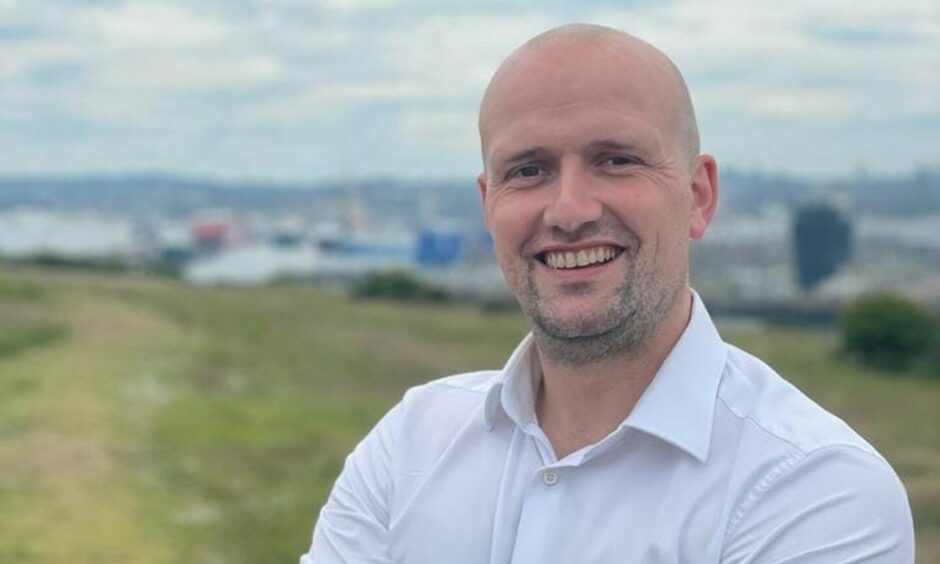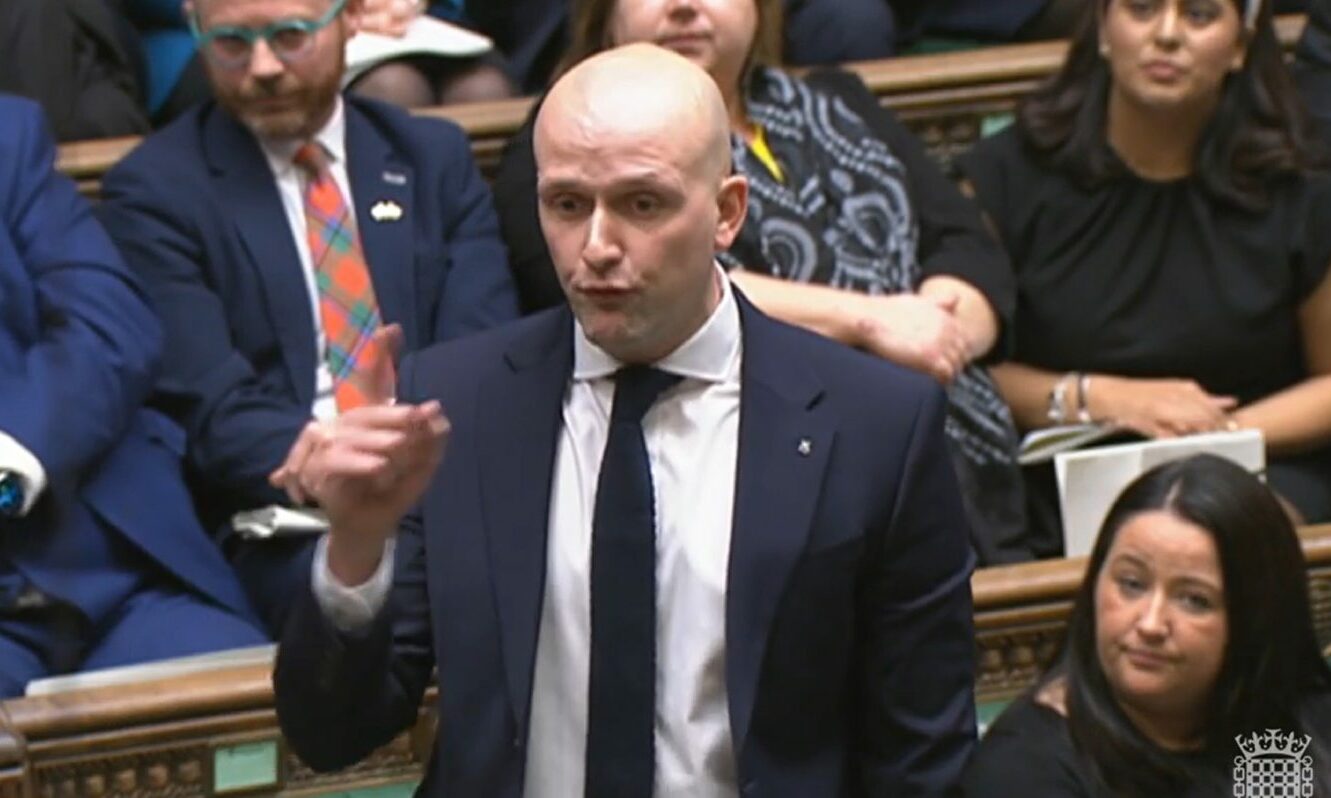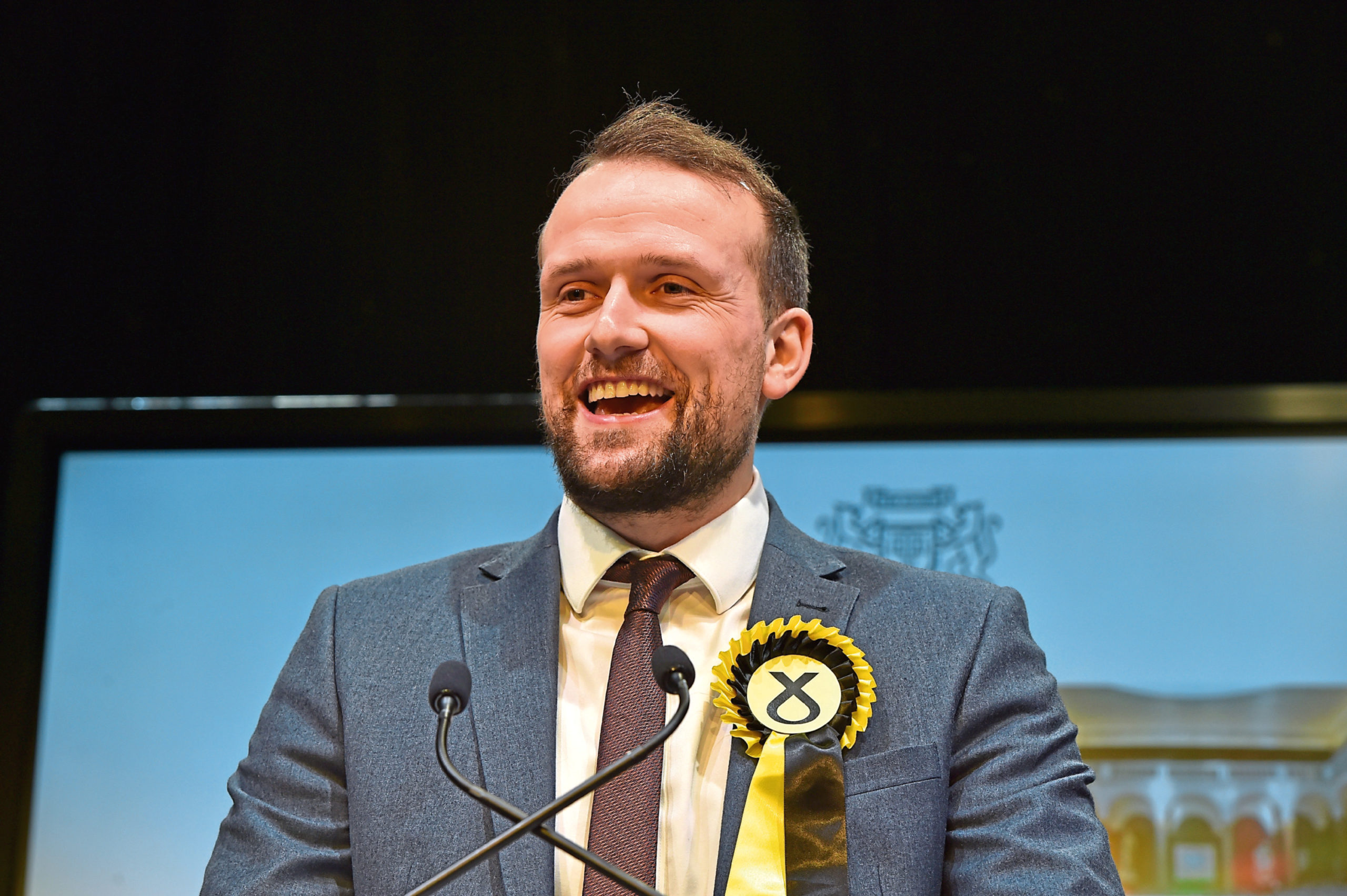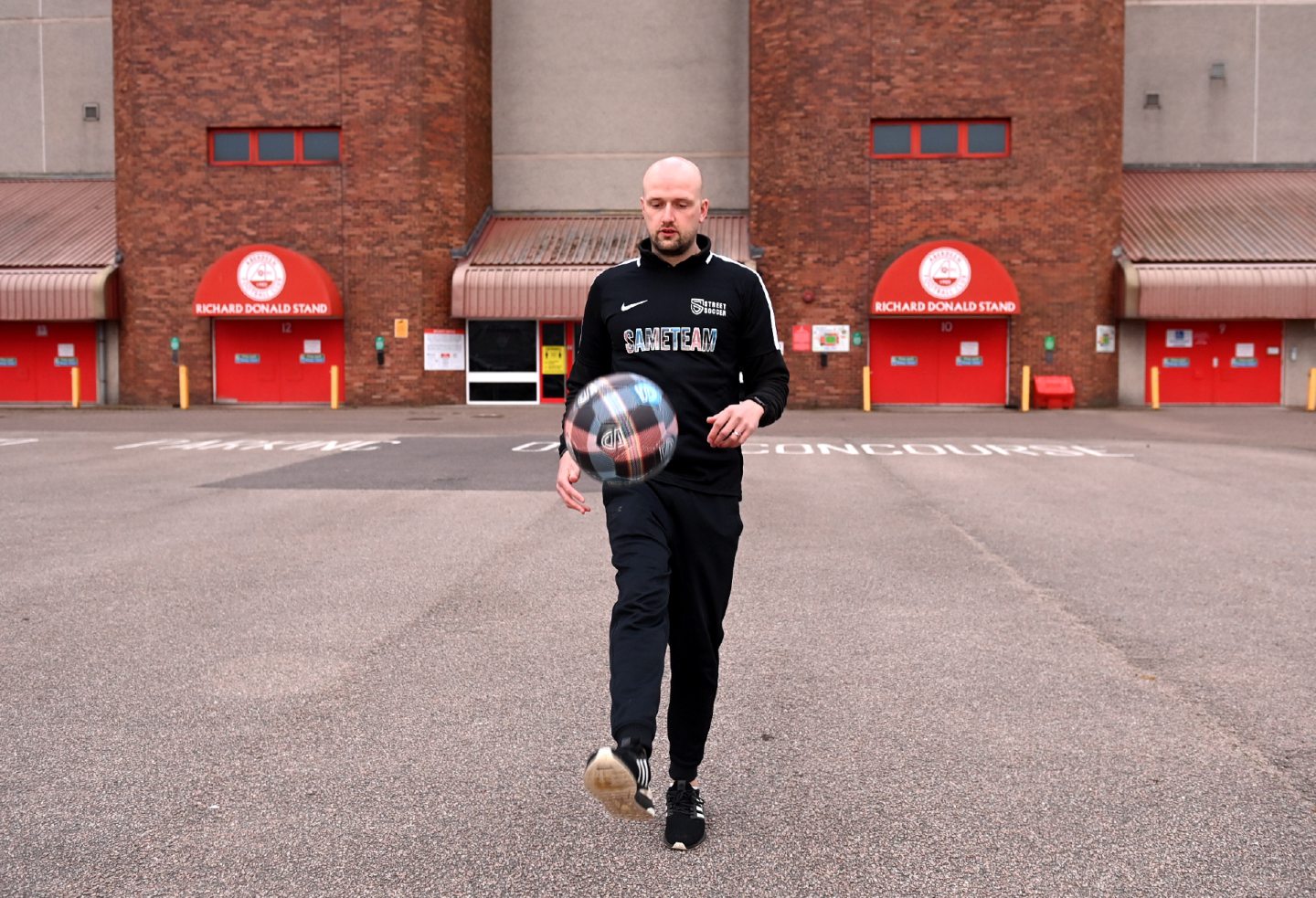
Stephen Flynn isn’t your conventional MP, but then again, his path to becoming leader of the SNP at Westminster was anything but orthodox.
Most teenagers aren’t diagnosed with avascular necrosis – a painful condition where bone tissue dies because of a lack of blood supply – but this happened to Flynn after he jumped down a set of stairs and collapsed at the age of 14.
In an instant, his world changed and his love of sport was replaced by a fascination with books and history and watching TV news programmes as the Iraq War sharpened his political perspective.
Living in Dundee as he was at the time, one suspects he might have voted Labour 30 or 40 years ago, but, in his assessment, the party left him rather than the other way around and he developed a passion for Scottish independence which led to him joining the SNP and making rapid progress up the ladder.
He was a councillor in the Granite City in his mid-20s, as the prelude to standing for and winning the Aberdeen South constituency at the 2019 general election. And now, at 34, he is the most powerful figure among his party’s sizeable representation in London.
The reality of Brexit
Prior to talking to Flynn, I had been told he was a curious mixture of intellectual hard man and cross-party charmer, but he came across as somebody proud of his working-class roots. I spoke to him the day after Darvel had knocked Aberdeen out of the Scottish Cup, a seismic result which Flynn, as a Dundee United aficionado couldn’t comment on because he rather fancies holding on to his seat, thanks very much.
But, in every other way, he was open, transparent, concerned about what he regards as the “scary” impact of Brexit and the need for “democracy to be respected” with a second independence referendum or a “de facto” poll when Britain next goes to the polls.
He’s happy for that to be as early as next year, but beneath the bonhomie, one senses a frustration at the current glacial chill which exists between Holyrood and Westminster. Given his youth, he has time on his side, but there’s an urgency about his conversation and he genuinely believes Britain is only now waking up to the reality of Brexit.
It affects everybody in the north-east
He said: “My desire to go to Westminster was pretty simple: the general election was very much framed on Brexit, Aberdeen had voted overwhelmingly to remain within the EU, Scotland had voted overwhelmingly to remain within the EU, and I wanted to make Scotland’s voice heard on that particular issue.
“As it transpired, Boris Johnson and the Tories won a landslide in England, so it was dealt with in a very swift fashion by the UK Government which is reflective of how the Union works. When you’re down here, there is only so much Scottish MPs can ultimately achieve when there are more MPs for the city of London [73] than our entire nation [59].”
He went on to say: “It’s scary, the damage that Brexit is causing, in terms of the impact it has had on Aberdeen, the barriers that have been put up, limiting so many businesses’ ability to trade freely and openly with 27 member states and 500 million people.
“But perhaps the most important thing is the ending of freedom of movement and the challenges that has posed, not only to the private sector, but also the public sector.
“Everyone’s acutely aware of the pressures on our NHS at the moment and a fair amount of those pressures spring from the fact we have delayed discharge – bed blocking, for want of a better phrase – from our hospitals into our social care sector.
‘That should scare us in Scotland’
“And a lot of that is driven by the fact we just don’t have the staff that we did, or the ability to pull people in the way we could previously from the continent.
“If there was a short-term fix to the economic chaos that we’re in, to rewrite the damage done by Kwasi Kwarteng and Liz Truss, it would be rejoining the EU. Sensible Conservatives know and sensible Labour members know that it’s the pathway to a brighter future, but they’re scared to talk about it and that should scare us in Scotland.”
Flynn is aware that many people are worried about what lies ahead, not least in Aberdeen as the energy sector grapples with the next chapter in North Sea history. Some of his family work in the sector, but he is convinced that the SNP strategy of focusing on renewables and net-zero rather than backing more large-scale drilling projects is the best way to adapt to a changing world amid climate concerns.
‘I want us to be at the forefront’
He said: “All of us in the north-east are aware that oil and gas isn’t going to be here forever, so what does our future look like? Do we take those first steps and try to be a leader in terms of renewables, in terms of offshore wind, onshore wind and using that abundance of excess electricity that we’re going to have to try and capture to develop a hydrogen economy which everybody in Europe is talking about.
“The Germans are desperate for a hydrogen economy because they’re having to open coal mines at the moment, because of the challenges being posed by the horrific situation with Russia’s invasion of Ukraine. So we have the ability to play a key role within that journey. And I want us to be at the forefront of that.
“As politicians, we have to accept that is going to involve making sure the just transition actually works. And if it doesn’t, then that’s on us. And that’s our mistake.”
Flynn did his utmost to be the voice of reason when I asked him about Scottish independence and seemed aghast when I mentioned the possibility of civil unrest – “that would be totally self-defeating” – if Westminster keeps rejecting the idea.
But, on the evidence of the stance adopted by both main parties in London, his belief in a pragmatic route to such a thorny constitutional question seems naive.
He stated: “I would much prefer to be in a situation where Rishi Sunak or Keir Starmer, should it be him, say: ‘We are going to respect the views of the people of Scotland, we are going to respect the electorate and we’re going to let them have their say.’
This should ‘frustrate’ the voters
“That’s obviously not happening, which leaves us in the situation of: ‘What do we do?’ What are we left with? We want a referendum, we’ve got a mandate for one, but we’ve been told [by the Supreme Court] we can’t have one.
“The party will have its conference on March 19 to determine its position, but a de facto referendum is ultimately the only option left on the table for us. That should really frustrate the electorate. Irrespective of whether you agree with independence or not, and I know there’s a big cohort of folk who don’t, they surely believe in democracy.
Flynn dealt patiently with disability for almost 20 years – but he might have to endure political obstacles for a while longer.
Five questions for Flynn
1)What book are you reading? “Who Owns History? by Geoffrey Robertson”.
2)Who’s your hero/heroine: “Ruby Bridges, the young school pupil who was the first African-American child to attend the [all-white] William Frantz Elementary School in Louisiana in 1960 and later became a civil rights activist”.
3)Do you speak any foreign languages? “French, badly”.
4)What’s your favourite music or band? “The Boss, Bruce Springsteen”.
5)What’s your most treasured possession? “I have a box of dominoes which used to belong to my grandparents.”



